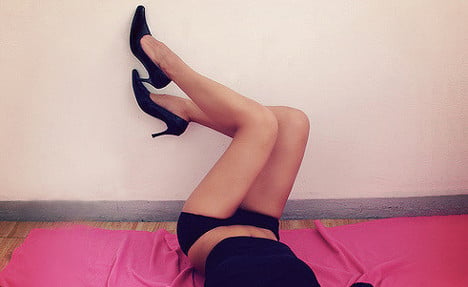We advise you to think carefully before using some if you're trying to woo a French person into your bedroom.
2. Take Willy to the circus – Emmener Popaul au cirque
 Photo: Michael Coghlan/Flickr
Photo: Michael Coghlan/Flickr Photo: Teddy Kwok/Flickr
Photo: Teddy Kwok/Flickr
 Photo: Danny James Ford/Flickr
Photo: Danny James Ford/Flickr.jpg) Photo: Artizone/Flickr
Photo: Artizone/Flickr



 Please whitelist us to continue reading.
Please whitelist us to continue reading.
Member comments